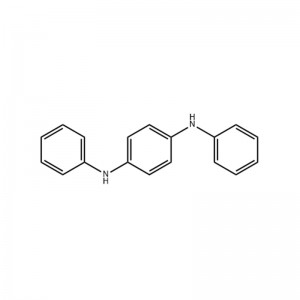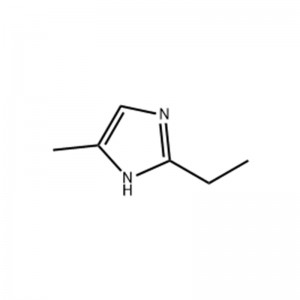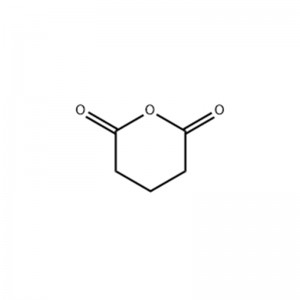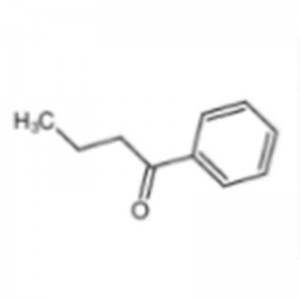
Products
Diphenyl-p-phenylenediamine
Structural Formula

Physical
Appearance: gray powder or flake
Density: 1.2
Melting point: 143-145 °C(lit.)
Boiling point: 220-225 °C0.5 mm Hg(lit.)
refractivity: 1.6300 (estimate)
Flash point: 220-225 °C/1 mm
Safety Data
Customs Code:2921590090
Export Tax Refund Rate(%):11%
Application
Used in natural rubber and latex such as styrene-butadiene, nitrile-butadiene, cis-butyl, polyisoprene, etc., it can make it have good multi-flex resistance and anti-cracking performance. Improve the tensile strength, enhance the protection against harmful metals such as hot oxygen, ozone and manganese on copper wall, and have no influence on vulcanization. Combined with antioxidant D, it can solve various aging problems of dark rubber products. In addition, it is also used as polyethylene and polypropylene. Used as an antioxidant in the rubber industry
Production method: Hydroquinone is reacted with aniline under the catalysis of triethyl phosphate at 280-300℃ and 0.7MPa pressure for a certain time. Chemicalbook removes the excess aniline under low vacuum and then distills the intermediate under higher vacuum. The remaining material after the distillation of the intermediate is sliced, powdered and packaged as the finished product. The synthesis reaction is as follows
Category: Flammable liquid
Toxicity classification: poisoning
Explosive hazard characteristics: can react with oxidizing agents; weak allergens
Flammability hazard characteristics: heat, open fire more flammable; heat decomposition of toxic nitrogen oxide fumes; teratogenic agent
Storage and transportation characteristics: ventilated and dry; stored separately from oxidizers
Fire extinguishing agent: dry powder, carbon dioxide; 1211; foam









